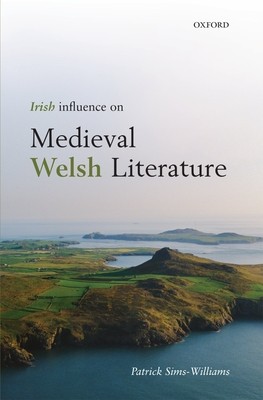
- We will send in 10–14 business days.
- Author: Patrick Sims-Williams
- Publisher: Oxford University Press, USA
- ISBN-10: 0199588651
- ISBN-13: 9780199588657
- Format: 16 x 23.6 x 3.3 cm, hardcover
- Language: English
- SAVE -10% with code: EXTRA
Irish Influence on Medieval Welsh Literature (e-book) (used book) | bookbook.eu
Reviews
Description
In the Middle Ages Ireland's extensive and now famous literature was unknown outside the Gaelic-speaking world of Ireland, Scotland, and the Isle of Man - with Wales an important exception. Irish emigrants had settled in Wales from the fifth century onwards, Irish scholars worked in Wales in the ninth century, and throughout the Middle Ages there were ecclesiastical, mercantile, and military contacts across the Irish Sea. From this standpoint, it is not surprising that the names of Irish heroes such as Cu Roi, Cu Chulainn, Finn, and Deirdre became known to Welsh poets, and that Irish narratives influenced the authors of the Welsh Mabinogion. Yet the Welsh and Irish languages were not mutually comprehensible, the degree to which the two countries still shared a common Celtic inheritance is contested, and Latin provided a convenient lingua franca. Could some of the similarities between the Irish and Welsh literatures be due to independent influences or even to coincidence? Patrick
Sims-Williams provides a new approach to these controversial questions, situating them in the context of the rest of medieval literature and international folklore. The result is the first comprehensive estimation of the extent to which Irish literature influenced medieval Welsh literature. This book will be of interest not only to medievalists but to all those concerned with the problem of how to recognize and evaluate literary influence.
EXTRA 10 % discount with code: EXTRA
The promotion ends in 17d.06:31:36
The discount code is valid when purchasing from 10 €. Discounts do not stack.
- Author: Patrick Sims-Williams
- Publisher: Oxford University Press, USA
- ISBN-10: 0199588651
- ISBN-13: 9780199588657
- Format: 16 x 23.6 x 3.3 cm, hardcover
- Language: English English
In the Middle Ages Ireland's extensive and now famous literature was unknown outside the Gaelic-speaking world of Ireland, Scotland, and the Isle of Man - with Wales an important exception. Irish emigrants had settled in Wales from the fifth century onwards, Irish scholars worked in Wales in the ninth century, and throughout the Middle Ages there were ecclesiastical, mercantile, and military contacts across the Irish Sea. From this standpoint, it is not surprising that the names of Irish heroes such as Cu Roi, Cu Chulainn, Finn, and Deirdre became known to Welsh poets, and that Irish narratives influenced the authors of the Welsh Mabinogion. Yet the Welsh and Irish languages were not mutually comprehensible, the degree to which the two countries still shared a common Celtic inheritance is contested, and Latin provided a convenient lingua franca. Could some of the similarities between the Irish and Welsh literatures be due to independent influences or even to coincidence? Patrick
Sims-Williams provides a new approach to these controversial questions, situating them in the context of the rest of medieval literature and international folklore. The result is the first comprehensive estimation of the extent to which Irish literature influenced medieval Welsh literature. This book will be of interest not only to medievalists but to all those concerned with the problem of how to recognize and evaluate literary influence.


Reviews